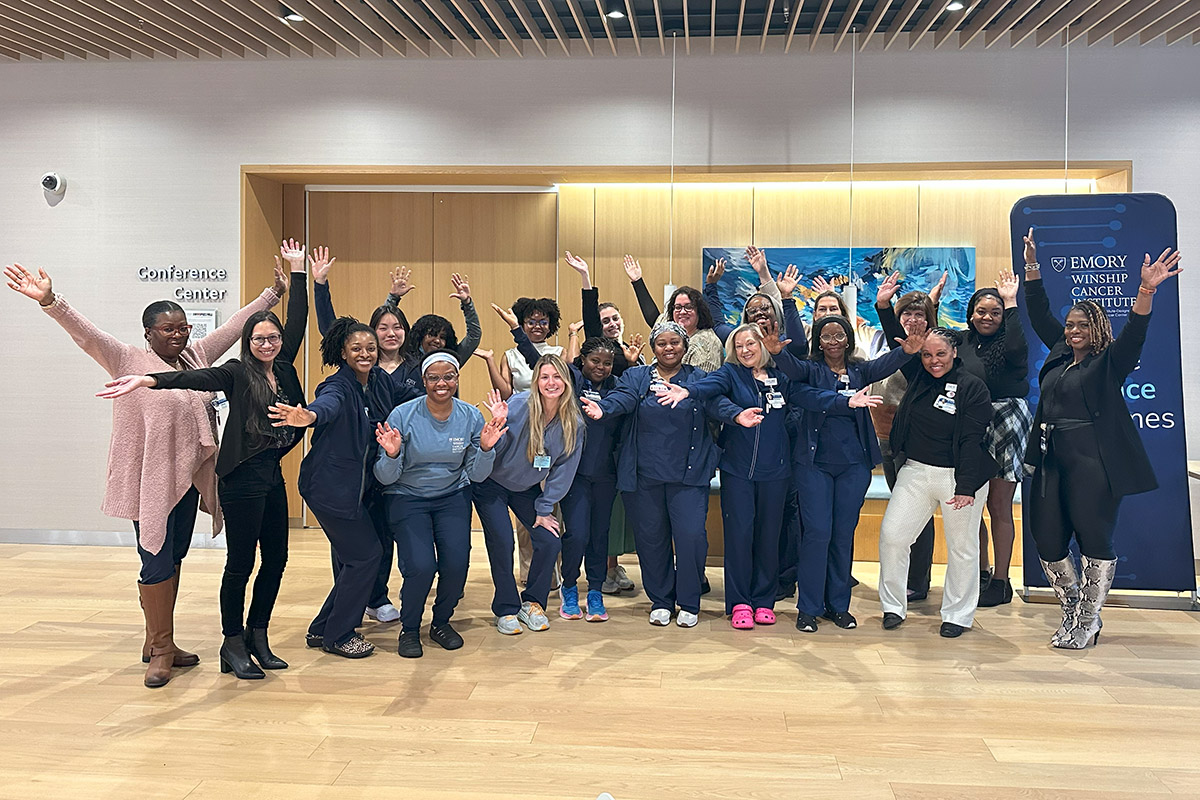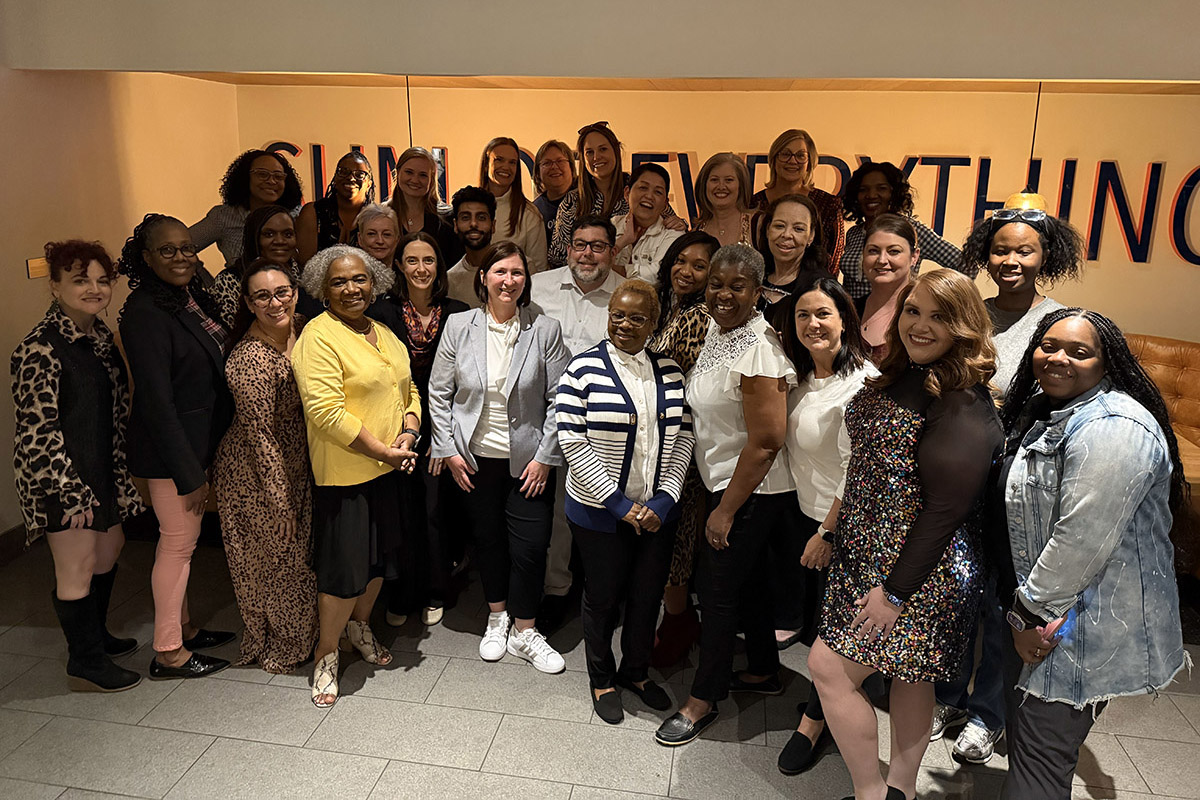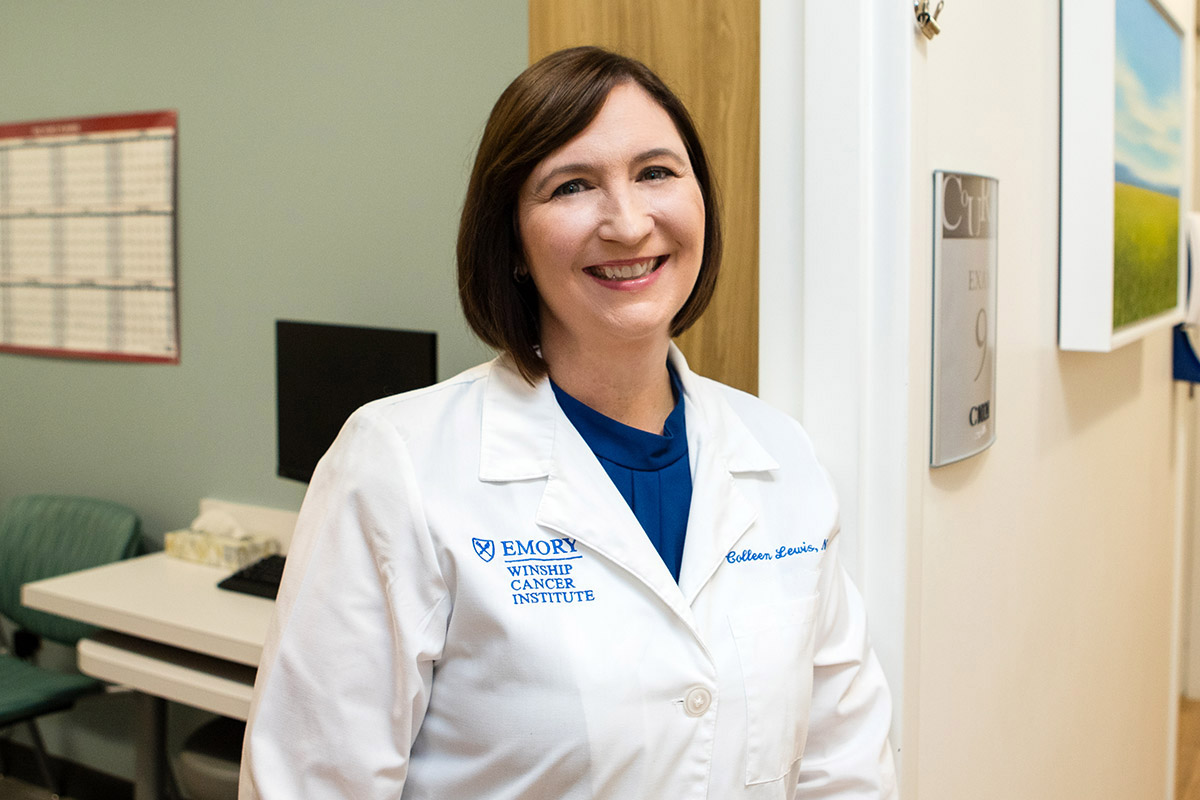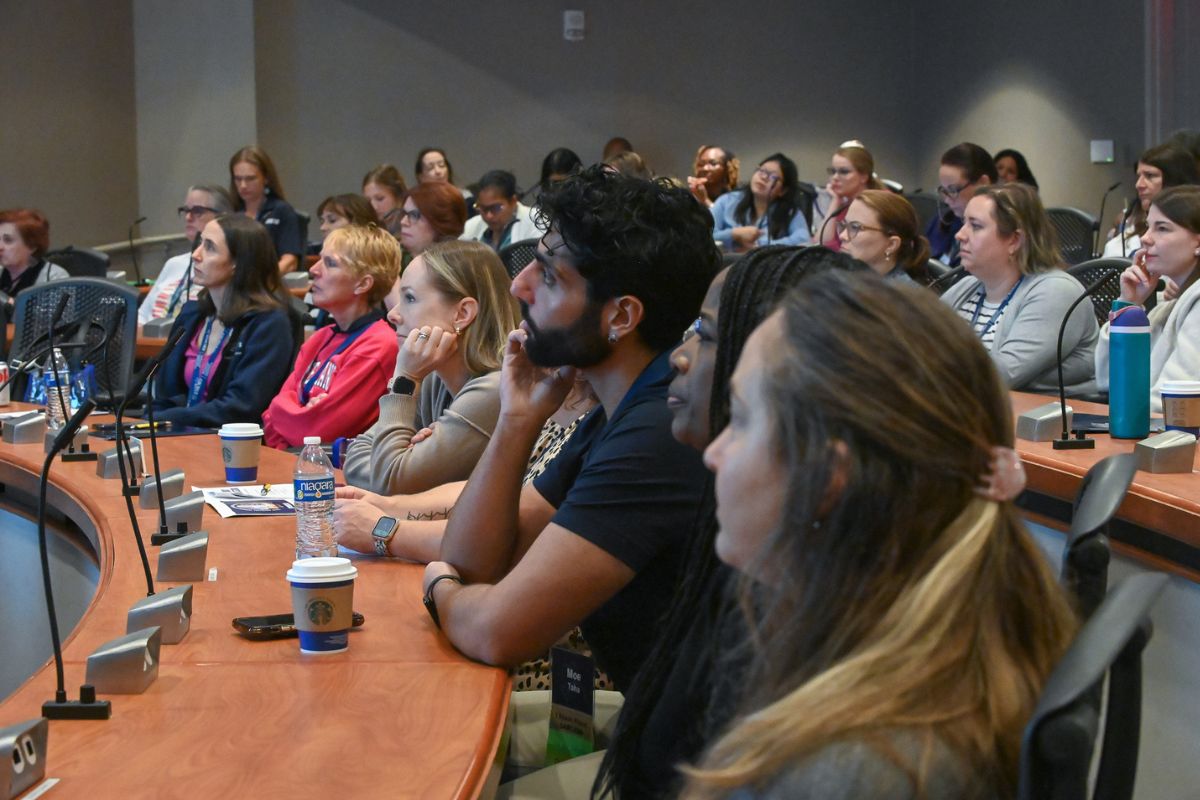
More than 270 nursing professionals from across the region attended Winship Cancer Institute of Emory University’s 16th Annual Oncology Nursing Symposium at the Hilton Atlanta Airport, Aug. 8-9.
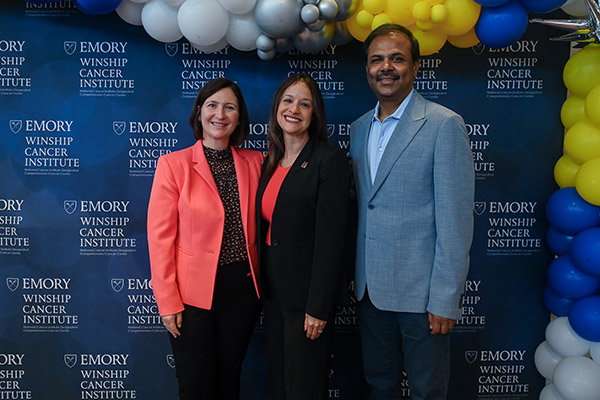
Colleen Lewis, MSN, ANP-BC, AOCNP, Winship senior vice president, cancer nursing, keynote speaker Jessica MacIntyre, DNP, MBA, APRN, AOCNP®, FAANP, and Suresh S. Ramalingam, MD, FACP, FASCO, Winship executive director.
More than 270 nursing professionals from across the region attended Winship Cancer Institute of Emory University’s 16th Annual Oncology Nursing Symposium at the Hilton Atlanta Airport, Aug. 8-9.
With the theme “Advancing Excellence in Oncology Nursing Through Innovation, Compassion and Care,” the continuing education event addressed the latest trends, evidence-based practices and patient-centered approaches in cancer care. The agenda featured two plenary sessions, scientific poster presentations and two focused breakout tracks. The “innovation” breakout sessions covered the latest advances in cellular therapies, clinical trials, radiopharmaceutical therapy and surgical oncology. The “care and compassion” breakout sessions explored palliative care, managing oncologic emergencies and navigating grief with patients.
“Cancer research and care are constantly evolving, making continuing education an essential part of oncology nursing practice,” says Colleen Lewis, MSN, ANP-BC, AOCNP, senior vice president of cancer nursing for Winship Cancer Institute of Emory University and Emory Healthcare. “Our annual symposium is designed to address the latest real-world challenges and emerging opportunities in oncology nursing, inspiring attendees to return to their teams reenergized and better prepared to elevate patient care.”
A highlight of the symposium was a keynote address by Jessica MacIntyre, DNP, MBA, APRN, NP-C, AOCNP®, FANNP, on “What keeps oncology nurses awake: Challenges, changes and courage.” MacIntyre is the president of the Oncology Nursing Society (ONS)—the world’s largest professional organization for oncology nurses—and serves as assistant vice president, advanced practice, oncology at Sylvester Comprehensive Cancer Center in Miami.
In the following interview, MacIntyre discusses some of the themes of her keynote presentation, current trends and her hopes for the future of oncology nursing.
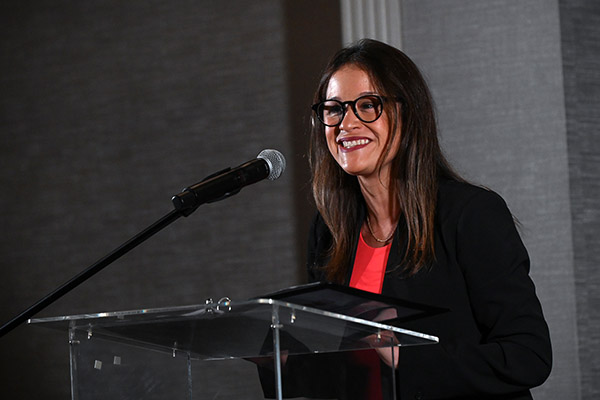
Jessica MacIntyre, DNP, MBA, APRN, AOCNP®, FAANP, president of the Oncology Nursing Society, delivers the keynote address.
What are some of the current challenges in oncology nursing? How do these challenges get addressed?
Oncology nurses face several challenges, including workforce shortages, the emotional toll of caring for patients with life-threatening illnesses, and the rapid pace of new technologies and treatments. Cancer care is also becoming increasingly complex with the emergence of therapies such as immunotherapy, targeted agents and cellular therapies, requiring nurses to continually advance their clinical knowledge and skills through ongoing education. While it is difficult to address all these challenges at once, meaningful progress depends on the shared commitment of healthcare organizations, policymakers and oncology nurses themselves. As the voice of oncology nursing nationwide, ONS has been instrumental in advocating for the profession, supporting nurses and partnering with key stakeholders to ensure that oncology nurses can continue to deliver excellence in practice and provide high-quality cancer care. Together, we must remain dedicated to elevating our profession, addressing these challenges and building upon our longstanding reputation for excellence in oncology nursing.
With the vast and continuing improvements in cancer care—thanks in part to new technology and other developments—do these opportunities make oncology nursing particularly interesting as a nursing specialty?
Absolutely. Oncology nursing is at the forefront of innovation, with nurses playing a critical role in implementing emerging technologies, from genomic testing and precision medicine to telehealth and digital symptom tracking. Because they are often the primary end-users, nurses should not only be implementing these tools but also testing them and providing essential feedback to ensure they truly meet patient needs. Their involvement in these advancements not only improves patient outcomes but also enables nurses to practice at the top of their scope, making oncology nursing a specialty that is both dynamic and intellectually stimulating.
What does the future of oncology nursing look like to you?
The future of oncology nursing looks bright and will be shaped by how we prepare the next generation of nurses, leaders and researchers. They are our legacy, and we have a responsibility to mentor, educate and support them as they grow into these roles. Our specialty will continue to evolve, with expanded opportunities that enable nurses to practice at the top of their licensure in areas such as prevention, survivorship, information technology, advanced practice and beyond. The actions we take today in developing skills, advancing practice and fostering leadership will define the future of oncology nursing and the impact we have on patient care for years to come.
Is there anything else you’d like to share?
I want to thank Winship Cancer Institute for investing in their nurses through this symposium. This demonstrates a true commitment to advancing knowledge and, in turn, improving patient care. It’s a model of support that many organizations would benefit from emulating.













